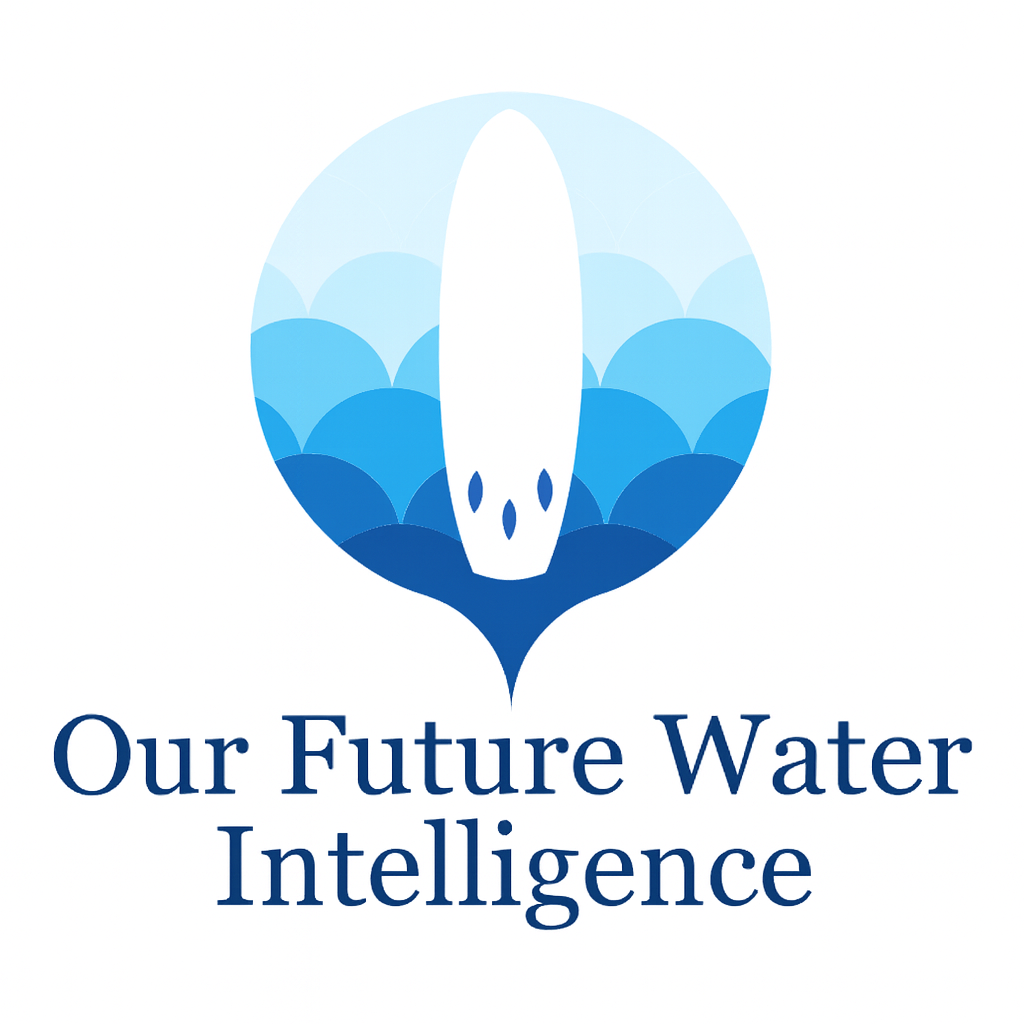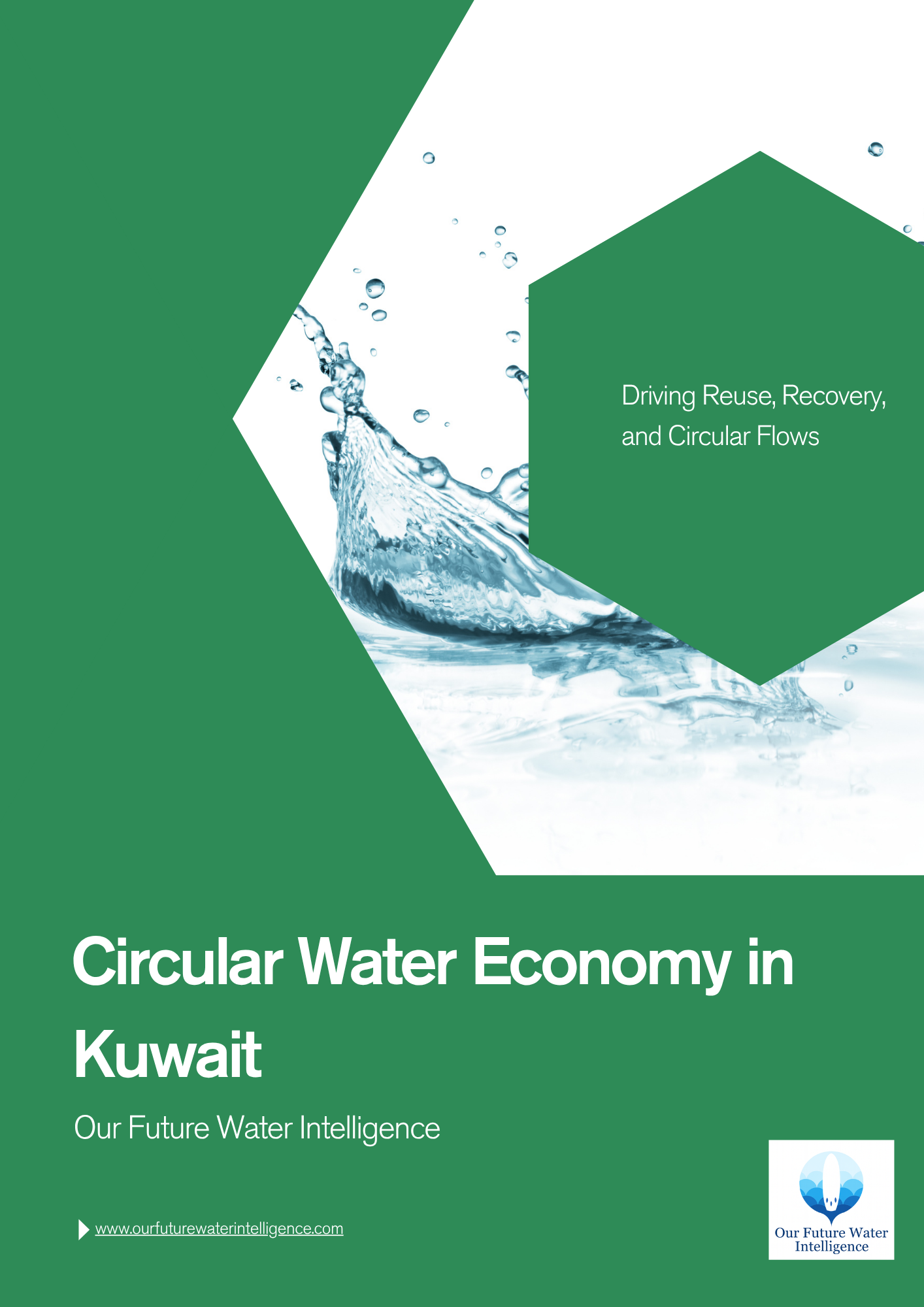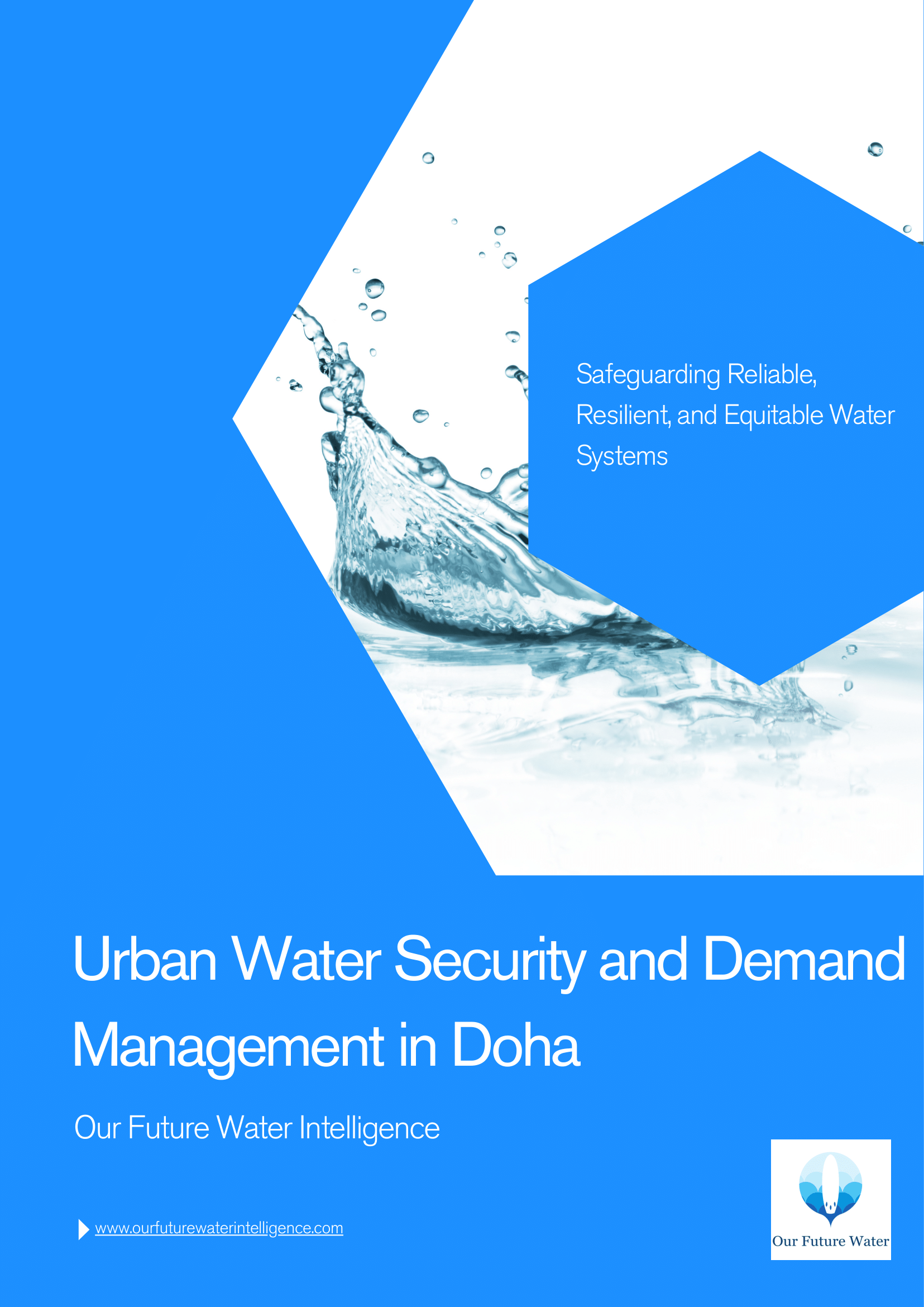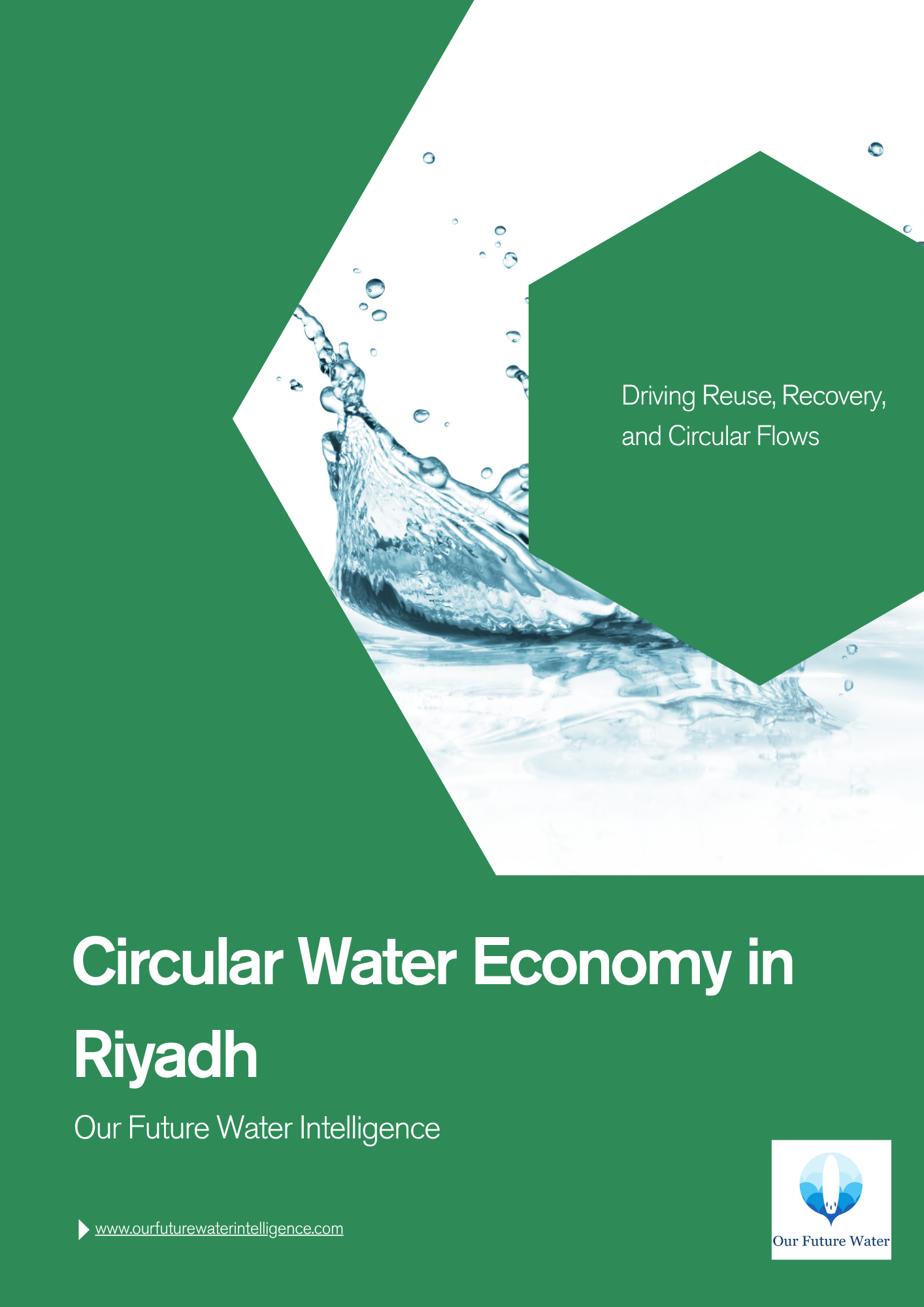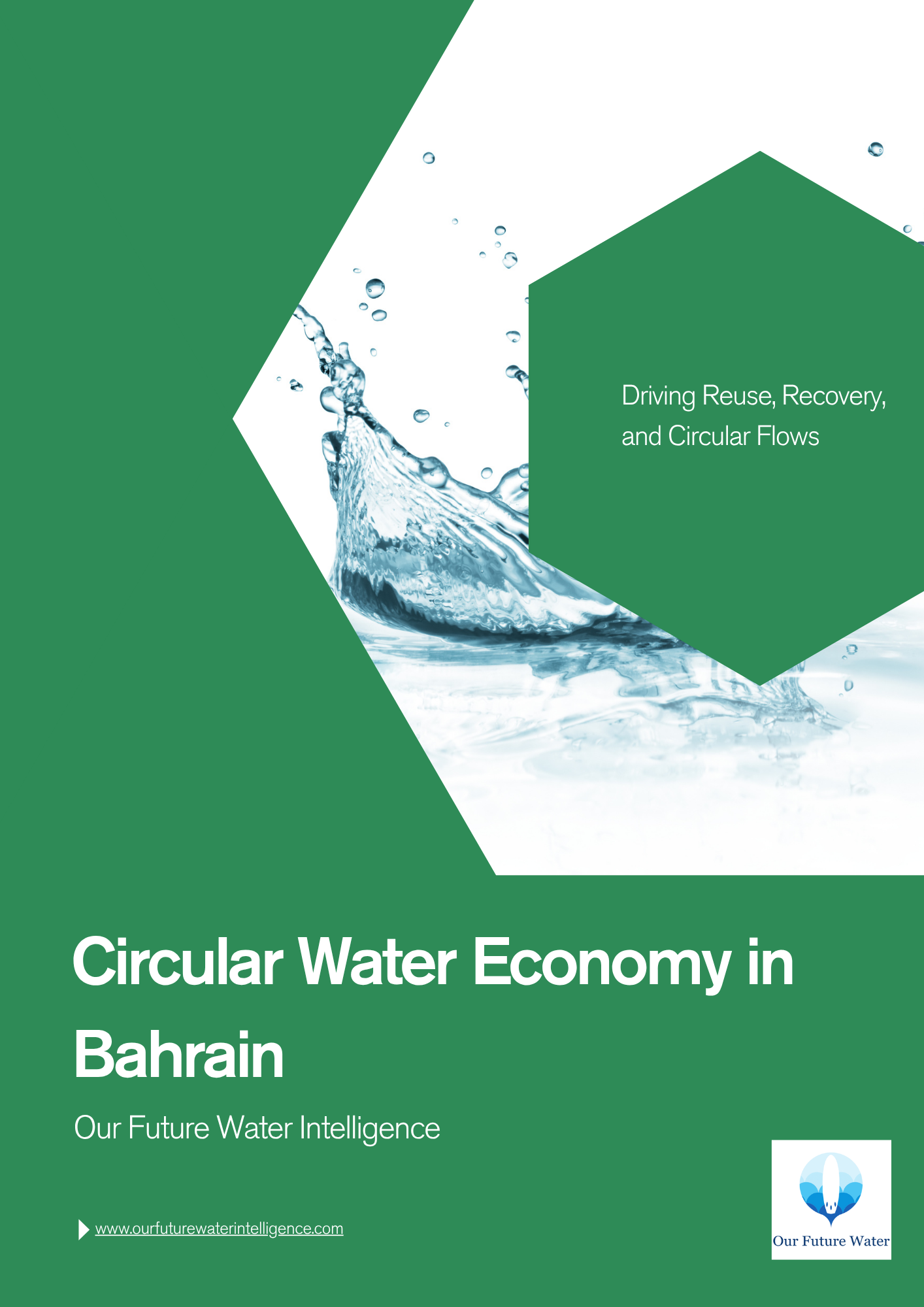
Circular Water Economy in Bahrain: Strategies for Water Security, Desalination, and Climate Resilience
Our Future Water Intelligence launches the Circular Water Economy in Bahrain report
Authored by Robert C. Brears, Founder of Our Future Water Intelligence and a leading voice on global water security with publications from Oxford University Press, Palgrave, and Springer Nature, the Circular Water Economy in Bahrain report delivers an evidence-based, strategic analysis of Bahrain’s water sector at a pivotal moment.
KEY FINDINGS
• Bahrain is 100% dependent on desalinated seawater for municipal supply, with its over-exploited aquifer retained strictly as a strategic reserve since 2016.
• Treated wastewater plays a growing role in irrigation and landscaping, with plans for future indirect potable reuse to diversify sources.
• Desalination is highly energy-intensive, consuming around 30% of national energy use, with significant CO₂ emissions and brine disposal challenges.
• Non-Revenue Water (NRW) remains a critical issue: inspections reveal the majority of high-consumption premises suffer from leaks.
• The National Water Strategy 2030 introduces tariff reforms, building-code updates for greywater/rainwater reuse, and stronger governance mechanisms.
• Investments in new plants, wastewater treatment upgrades, and smart metering rollouts are reshaping supply security and demand management.
• Climate risks—rising heat, aridification, and stormwater threats—intensify the energy-water nexus and heighten fiscal burdens of supply.
• Circular Water Economy (CWE) principles—Reduce, Reuse, Recycle, Recover, Restore—are being embedded to align with sustainability and GCC climate goals.
EXPERT INSIGHT
“Bahrain represents one of the world’s most water-stressed contexts, with extreme dependence on desalination and rising environmental costs,” said Robert C. Brears, Founder of Our Future Water Intelligence. “This Brief equips policymakers, investors, and practitioners with the intelligence needed to transition towards a circular water economy, reduce fiscal burdens, and strengthen climate resilience.”
WHAT’S INSIDE THE REPORT
• Comprehensive profile of Bahrain’s water supply, demand patterns, and reuse potential.
• Governance overview, including tariffs, subsidies, and institutional responsibilities.
• Infrastructure assessment covering desalination, wastewater treatment, stormwater systems, and reuse.
• Strategic outlook identifying future risks, efficiency measures, and investment priorities.
• Priority actions focusing on NRW reduction, renewable-powered desalination, tariff reform, and resource recovery pathways.
WHY THIS REPORT MATTERS
Bahrain epitomizes the urgent challenges of water security in hyper-arid settings. While the nation has achieved remarkable progress through large-scale desalination and treated effluent reuse, growing fiscal costs, climate pressures, and infrastructure vulnerabilities highlight the need for urgent reforms and circular approaches. This Brief provides essential foresight for decision-makers to design sustainable policies, secure financing, and advance long-term water resilience.
Read the report here: Circular Water Economy in Bahrain
